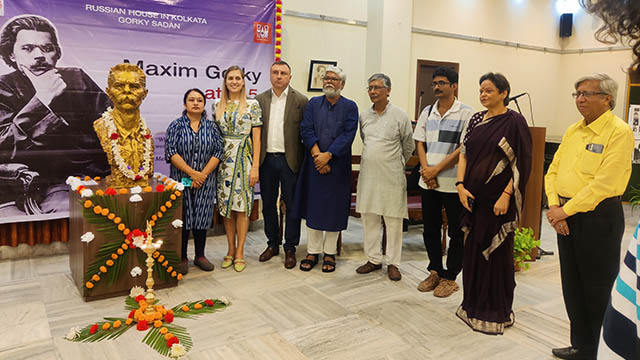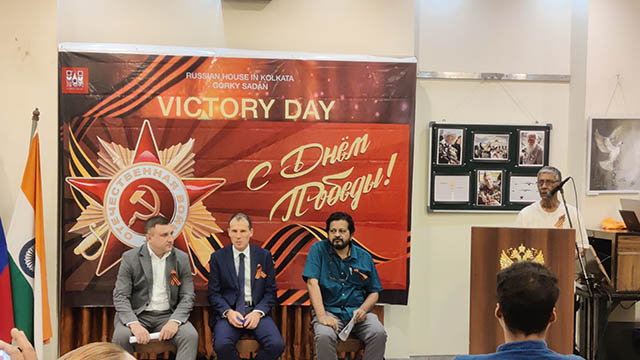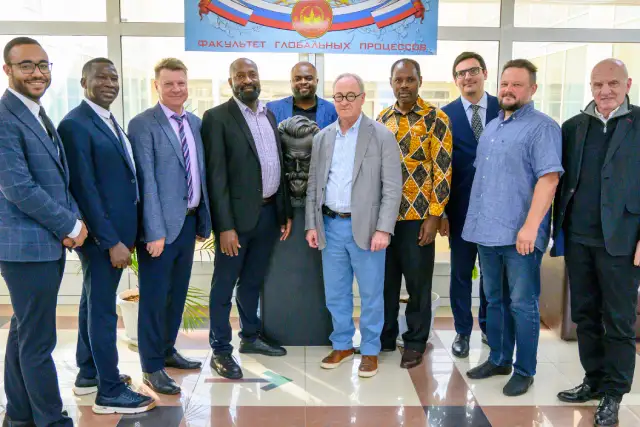On the occasion of the 155th birth anniversary of the famous Soviet novelist and Marxist political activist Maxim Gorky, a week-long cultural programme has been organised at Gorky Sadan, the Russian Centre for Science and Culture in Kolkata.
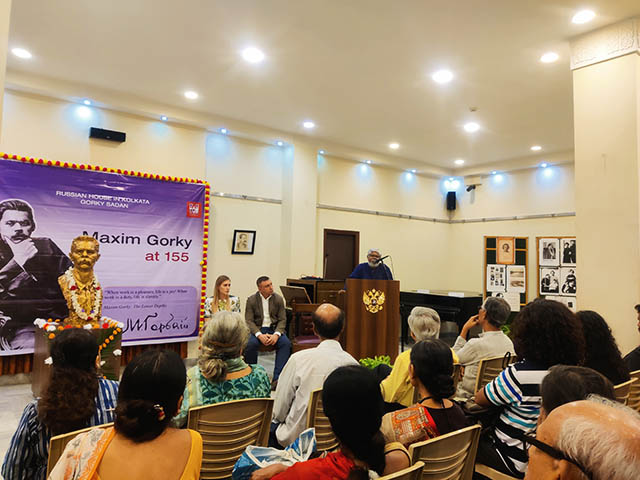
Ekaterina Lazareva, senior consul and protocol officer, Russian Consul General, Kolkata, inaugurated the event on Monday, March 27th at Gorky Sadan. The facility’s head Sergei Sushin and academic Sarasij Sengupta were also present with her at the event. Sengupta discussed Gorky’s life and literary works in detail.
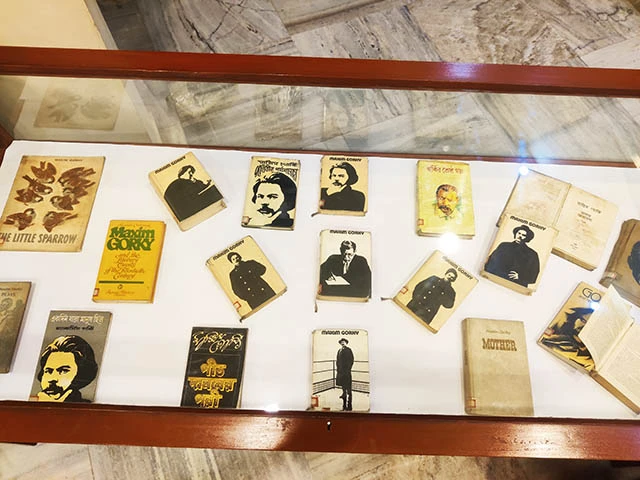
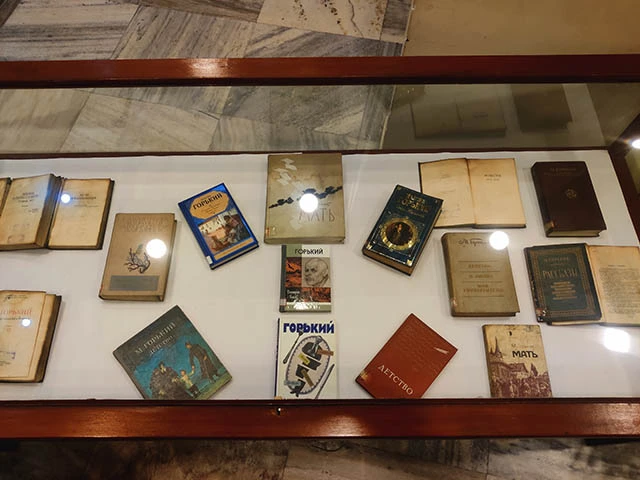
Besides, at the event of Gorky’s 155th birth anniversary, Lazareva, Sushin, and Sengupta inaugurated a photography exhibition which highlights various aspects of Gorky’s life and his contemporary works and activities.
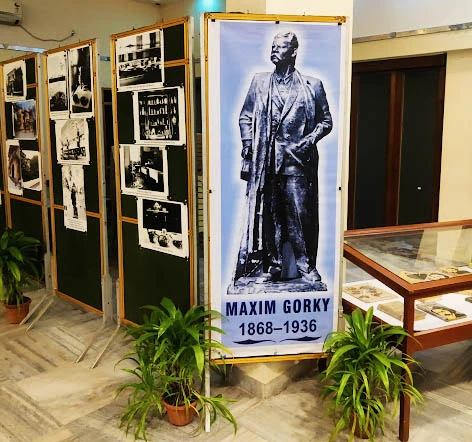
One of the sections of this exhibition is “India Connection”, which exhibits Gorky’s interaction with Indian anti-colonial revolutionaries and how he contributed to the anti-British struggle in India, especially through his correspondence with Madam Bhikaiji Rustom Cama and Shyamaji Krishna Varma. Gorky reportedly supported Indian anti-colonial movements from his earnings from literary journals.
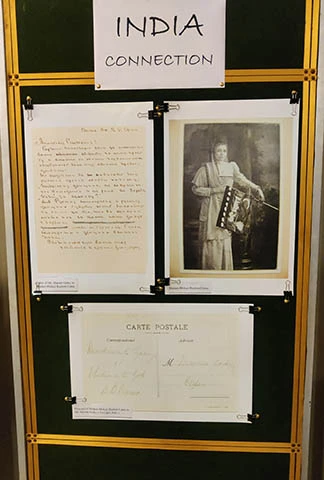
Alexei Maximovich Peshkov, better known as Maxim Gorky to the world, was born on March 28th, 1868, in Nizhny Novgorod, Russia. Born in poverty, Alexei Maximovich lost his mariner father at an early age. He started to live with his paternal grandfather after his mother remarried.
When he was 8, Gorky’s grandfather, who was reportedly harsh on him, sent him to earn a living. He had to do several gigs, including working as an apprentice of a shoemaker, a dishwasher on a steamer, etc. According to him, it was the cook of the steamer where he washed dishes, who taught him to read and introduced him to the world of reading, which later changed his life.
Alexei Maximovich took the pseudonym Maxim Gorky when he began his literary career in Tsarist Russia. The word “Gorky” literally means “bitter”, which he began to use in the literary work of the contemporary time to highlight the crisis of society around him.
At the age of 24, Gorky’s first story was published in a periodical, after which he was recognised as a talented writer. His first collection of stories was published in 1898. After that, he gradually became close to the revolutionaries of Tsarist Russia and was attracted to the left-wing ideology.
Gorky joined the Revolution of 1905 and then left Russia for London, where he met Vladimir Ilyich Lenin, the iconic revolutionary and the founder of the Soviet Union. Although two years elder than Lenin, Gorky was fond of the man and the duo shared a unique bonhomie.
Among his famous novels, “Mother” is particularly popular and this novel has been translated into 44 languages around the world. In the Soviet Union, the novel was published in several languages. After the Russian Revolution in 1917, Gorky became one of the intellectual architects of the new Soviet social order.
He became known throughout the world as a working-class playwright and novelist. Gorky died in the Soviet Union in 1936. His death greatly saddened the progressive writers and intellectuals of the world, who were then witnessing the ugly rise of fascism in Europe and the Far East.
Speaking on behalf of Gorky Sadan, Gautam Ghosh, the organiser of the event, told East Post that Gorky was also contacted by the Punjab Literary League of the then undivided British-ruled India. A letter from the League requesting Gorky to be on its advisory board has also been included in the exhibition.
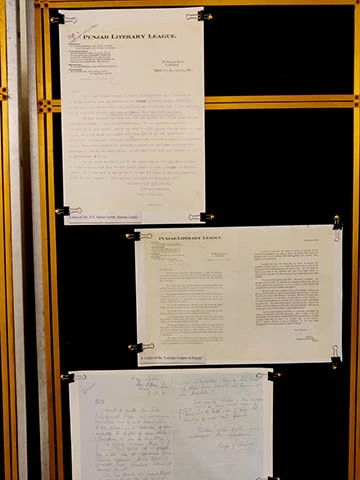
Ghosh added that this exhibition would continue till March 31st. On Tuesday, March 28th, Gorky Sadan Russian language students will stage a programme. On the same day, in the afternoon, writers of Kolkata will organise a literary gathering under the banner of Pragati Sahitya Sangh (Progressive Literary Forum). Furthermore, three famous films based on Gorky’s stories will be screened over three days.
Among them is the film “Mother” by Sevolod Pudovkin, based on Gorky’s famous eponymous novel. Ghosh said that Pudovkin’s 125th birth anniversary would also be observed this year. Alongside “Mother”, Akira Kurosawa’s “The Lower Depth” and Gleb Panfilov’s “Vasa”, based on Gorky’s play “Vasa Zheleznova”, will be screened.
Ghosh said he hoped the people of Kolkata would enjoy this week-long event to pay obeisance to Gorky.

